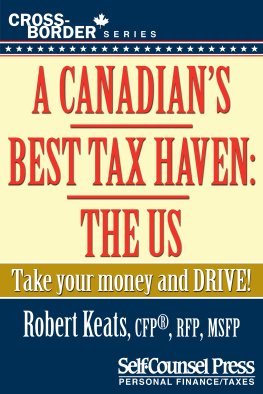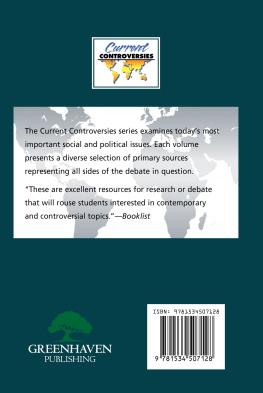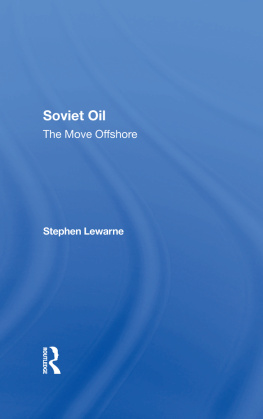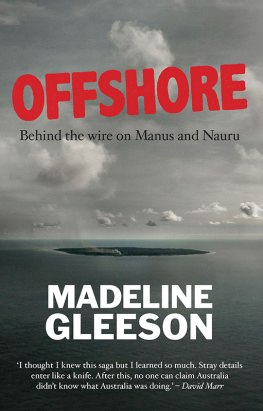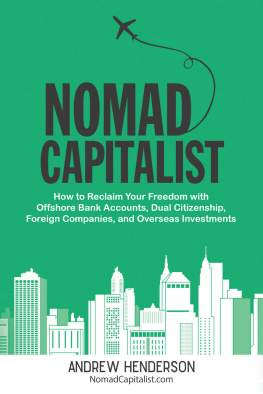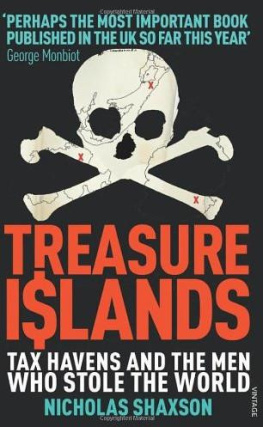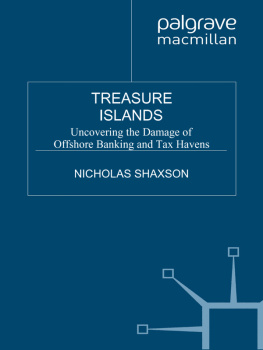
Forbidden Knowledge
Information They Don't Want You To Know
Edited by Robert E. Bauman, JD
Forbidden Knowledge: Information T h e y Don't W a n t Y o u t o K n o wRobert E. Bauman and T h e Sovereign Society, Ltd. 2 0 0 4
No part of this publication may be reproduced or transmitted in any form or by any means, electronic or mechanical, including photocopying and recording or by an information storage orretrieval system without the written permission of the publisher.
Copyright 2 0 0 4 All international and domestic rights reserved.
T h e Sovereign Society
5 Catherine Street
Waterford
Ireland
5 t h edition July 2 0 0 4
ISBN 0 - 9 5 4 7 7 5 4 4 - 4
Printed by: Victor Graphics 1 2 1 1 Bernard Drive Baltimore, MD 2 1 2 2 3
This publication is designed to provide accurate and authoritative information in regardto the subject matter covered. It is sold and distributed with the understanding that theauthors, publisher and seller are not engaged in rendering legal, accounting, or other professional advice or service. If legal or other expert assistance is required, the services of acompetent professional advisor should be sought.
Forbidden Knowledge
Information They Don't Want You To Know
Edited by Robert E. Bauman, JD
T h e Sovereign Society
5 C a t h e r i n e Street
Waterford
Ireland
Table of Contents
Preface
C H A P T E R
The Meaning of Natural Liberty 1
C H A P T E R
Second Passports & Dual Nationality 35
C H A P T E R
Offshore Banking: Privacy & Asset Protection 85
C H A P T E R
The Matter of Cash 1 4 9
C H A P T E R
Investments 1 6 9
C H A P T E R
Your Finances & Estate Planning 2 3 1
C H A P T E R
Taxes & How to Avoid Them Legally 2 7 1
C H A P T E R
Offshore Tax Havens 3 1 5
C H A P T E R
Very Special Places 3 5 1
C H A P T E R
Personal Privacy 4 1 9
C H A P T E R
Personal Security 4 5 5
C H A P T E R
Technology 4 6 9
APPENDIX I
Author Biographical Sketches 4 8 5
APPENDIX II
Offshore Web Sites 4 8 9
APPENDIX III
Glossary 4 9 1
Preface
"... just as the State has no money of its own, so it has no power of its own.
All the power it has society gives it, plus what it confiscates from time to time on onepretext or another; there is no other source from which State power can be drawn.
Therefore every assumption of State power, whether by gift or seizure, leaves societywith so much less power; there is never, nor can be, any strengthening of State powerwithout a corresponding and equivalent depletion of social power."
-Albert]. Nock (1935)
"Knowledge itself is power."
-Francis Bacon, Meditationes Sacrae (1597)
In the age-old struggle for individual liberty against the power of the state, there can be no question which side has triumphed throughout most of the twentieth century.
T h e one interest the state willingly sacrifices to the "common good" is personal liberty "the freedom to produce and create, to buy and sell, to speak and publish, to travel, to live freely. By diminishing liberty, government systematically subverts people's responsibility for their own lives. It robs those who produce in order to placate those who only consume. T h e result is economic stagna-tion, retrogression and political corruption.
Since the seventeenth century, in England, France and America, and more recently in Russia and eastern Europe, revolutions against this tyranny of the state were fought on behalf of an alternative we can call "natural liberty." At first successful, over time these revolutions cooled to com-placency and hard-won freedom came to mean guaranteed entitlement to government largess.
True natural liberty means that each of us is the sole legitimate owner of our own life and destiny, free to act as we wish so long as we use no violence, fraud or other aggression against others.
That same freedom dictates a free-market economy enjoying peaceful production and trade. It opposes government control by self-serving politicians.
No activity of statist government has diminished personal liberty more than the unchecked power to tax. In the United States, the United Kingdom and Germany the effective rate of personal taxes far exceeds 50 percent of earnings. In some nations, such as France and Sweden, it is higher still. Business is taxed at even greater levels. And everyone pays the ultimate price.
When government takes wealth from some and gives it to others, this forced redistribution diminishes the rights and well-being of the former, and often destroys the independence of the latter.
T h e issue of taxation involves nothing less than the human and natural right to own, use and enjoy private property, a "civil right" of the most basic kind. Property and wealth determine personal power to control our own lives, to make decisions, to raise a family, to live free.
As Albert Jay Nock noted, every additional tax imposed diminishes our freedom.
In an economic history of the Middle Ages, Paul Craig Roberts, the economist and columnist, showed that medieval serfs bound to the land and their masters rarely paid more then one-third of the value of their labors in taxes. For good reason: with very low productivity, serfs could not survive if forced to pay more taxes. With nothing to lose, they would revolt and kill the tax collectors.
Yet a half-millennium later, with capitalism's enormously increased productivity, we have even less right to our earnings than did those enslaved serfs. Says Roberts: "You are not free when you do not own the product of your own labor."
This book, Forbidden Knowledge, is a compendium of the acts and ideas of dynamic men and women who have exalted natural liberty in their own livesand many who do so to this day.
Albert Camus said, "Revolutionaries are men who say no!"
These authors have said an emphatic "NO" to Big Brother government. These practical people refuse to bow down to government, to submit to bureaucratic demands for ever higher taxes, greater controls and increased regulation.
In some cases this has meant leaving the nation of their birth and moving to countries that still believe in and practice natural liberty. There are such places, as you will see. Some individuals you will meet in these pages call no single nation "home," spending the changing seasons of each year in many places where they do business, and enjoy the new experiences and the pleasures life has to give.
Drawing on their experience, you too can have a life of natural liberty. You too can live, work, invest and do business without having to pay taxes to any government anywhere. And you can do this legally and with maximum personal security and financial privacy.
To knowledgeable people, true financial security means:
the maximum possible tax avoidance
the strongest possible financial privacy
the greatest degree of asset protection
the most profitable investments
These goals, and how to achieve them, are spelled out in Forbidden Knowledge.
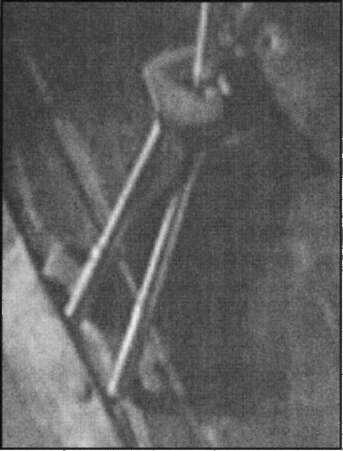
Next page

